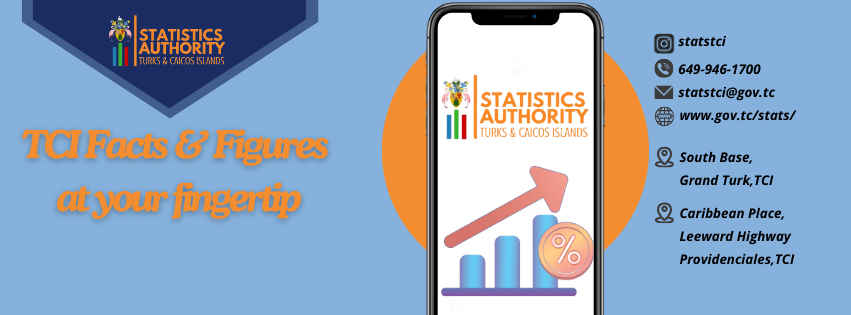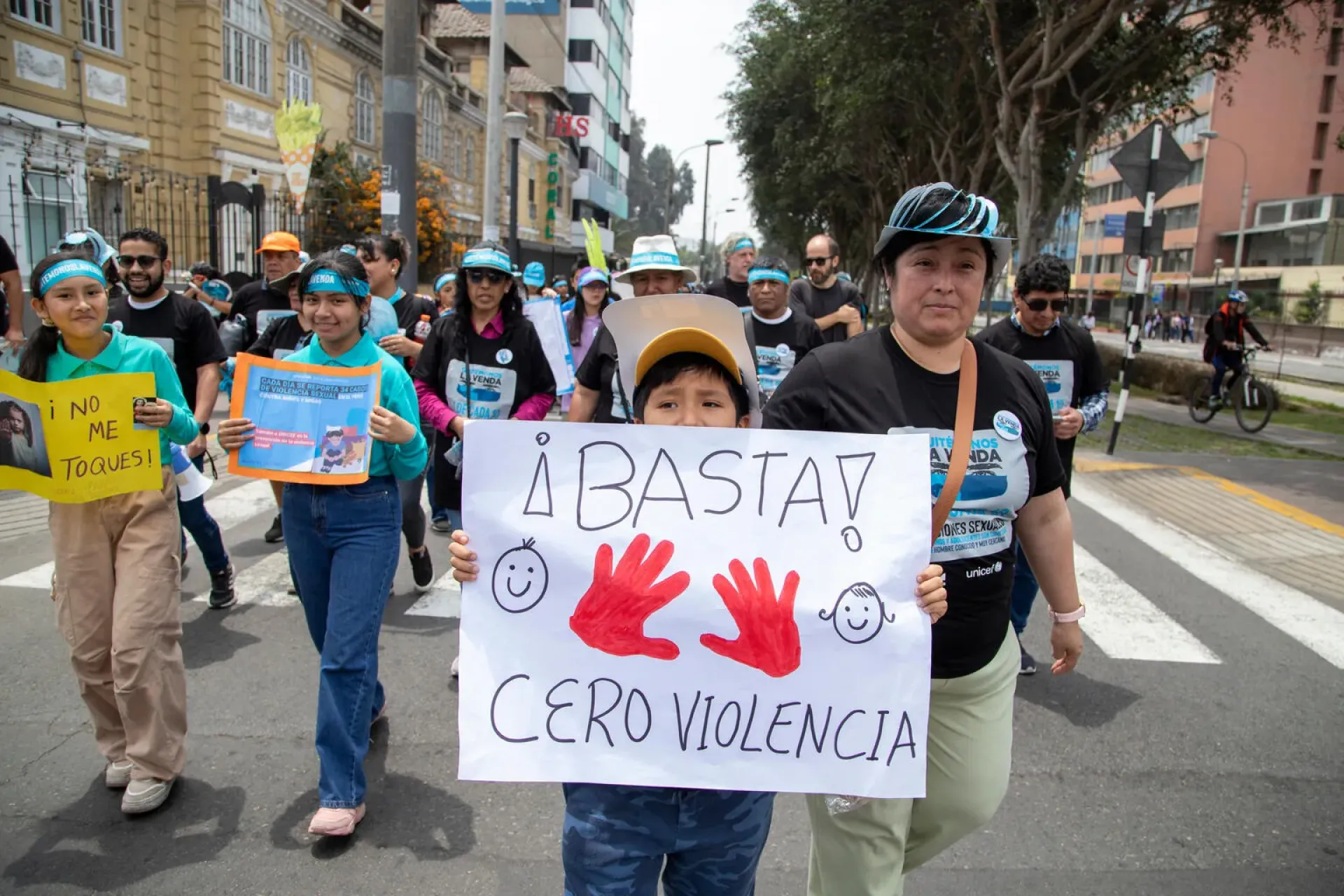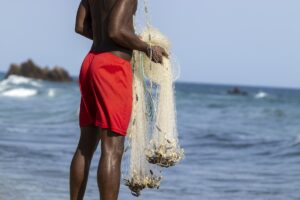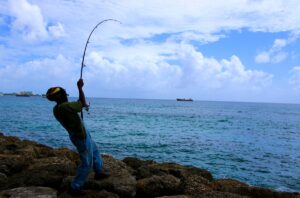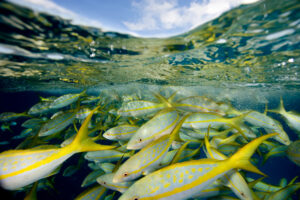~SCU and TCICC using industry knowledge to train and develop ~
Montego Bay, Jamaica – Premier of the Turks and Caicos Islands, the Hon. Charles Washington Misick, has saluted Sandals and Beaches Resorts for the major economic impact they have had on the islands, alluding to the significant growth in the Gross Domestic Product since the opening of the Beaches Turks and Caicos Resort Villages and Spa (BTC) in 1997. He spoke to the major investment the luxury all-inclusive chain provided through the work of former chairman Gordon “Butch” Stewart, and the continued support by now Executive Chairman, Adam Stewart.
now Executive Chairman, Adam Stewart.
In his keynote address at a recent ceremony for the signing of a Memorandum of Understanding (MoU) between the Sandals Corporate University (SCU) and the Turks and Caicos Islands Community College (TCICC), Honourable Misick shared, “I used to meet Butch in Miami at Coconut Grove where we had many conversations about him potentially acquiring the hotel for the chain. He did so the following year, 1997. Fast forward to today, BTC has become a staple and one of the reasons why we’ve been able to do so much in these islands.”
Additionally, he lauded the continued work of the brand to empower the labor force, under the leadership of SRI’s Executive Chairman, Adam Stewart. He explained, “the partnership between SCU and TCICC was conceived with the vision of strengthening the local workforce. In under four months, we’ve made remarkable progress. By elevating educational standards and creating job opportunities, we’re not just enhancing the Human Development Index (HDI) for the Turks and Caicos Islands, we’re building a more efficient economy. The focus is on improving education, improving quality of life, but also, as a small country, we would like to be able to expose our young people to what is happening in the other corners of the Caribbean, and the world.”
The MoU signing is the second of its kind for the SCU in the region, following a recent agreement with the UWI Global Campus. Held at the Beaches Turks and Caicos Resort Villages and Spa, the ceremony was also attended by Minister of Education, Youth, Sports and Culture, the Hon. Rachel Taylor, Minister of Tourism, Environment, Heritage, Maritime, Gaming and Disaster Management, the Hon. Josephine Connolly, Executive Chairman of Sandals Resorts International, Adam Stewart, President/CEO of TCICC, Dr. Candice Williams along with other dignitaries and leaders from both SCU and TCICC.
Hon. Taylor praised the partnership, adding that it represents, “a visionary initiative aimed at harnessing our collective strengths to bolster a sector that is vital to our economy. As we formalise this agreement, we are planting seeds for a future that holds unparalleled opportunities for our students, educators, and the hospitality industry at large.”
In his remarks, Adam Stewart affirmed the significant role of the SCU in the region, encouraging team members to embrace it as a catalyst for personal growth and self-improvement. He also commended the partnership with SCU and TCICC, noting SCU’s commitment to providing internships annually is just a fraction of the exciting opportunities available through this collaboration. He shared, “people are at the centre of what we do. The best thing you could do for the people of the Caribbean, is to provide opportunities for education. The quintessential saying of ‘teach an individual to fish as opposed to giving them a fish’, provides them with careers, exposure and builds their confidence to be able to be the best version of themselves. In turn, they can achieve their own independent economic goals and dreams. So what we’re doing is just one more commitment to the Turks and Caicos Islands, to the people of the Caribbean, to say everything that we’ve learned we’re sharing with you. We are fully committed at Sandals Resorts International and will remain an absolute investor in this country.”
In her address on behalf of TCICC, Dr. Candice Williams noted, “as we embark on this partnership with the SCU, we recognise its transformative potential for our students and our country. Through collaboration, innovation, and shared expertise, we will enhance the quality of education and training and create pathways for our students to excel in their careers and become leaders in the industry.”
The SCU will also work with the TCICC to identify subject matter experts from Sandals and Beaches Resorts to give guest lectures, provide input into the curriculum being developed for the TCICC’s hospitality and tourism management programmes and provide opportunities to promote enrolment of Sandals and Beaches team members in relevant programmes offered at the TCICC.
Additionally, the SCU will endeavour to facilitate the placement of up to 100 interns from TCICC within Sandals and Beaches Resorts per year for work experience and a formal Internship programme for students at various levels. Lastly, the SCU will, where possible, provide the opportunity for TCICC students international certifications through their partnerships with accrediting bodies in all aspects of hospitality management and technical related areas.
Photo Captions
Header – (From left, back row) Mr. James McAnally, managing director, Beaches Turks and Caicos Resort Villages and Spa, Dr. Deloris Stapleton-Harris, vice president – academic, vocational and student affairs, TCICC, Mr. Shawn DaCosta, chief operations officer, SRI, Dr. Luz Longsworth, senior corporate director, SCU, the Hon. Rachel Taylor, minister of education, youth, sports and culture, the Hon. Jamel Robinson, deputy premier, TCI, the Hon. Josephine Connolly, minister of tourism, environment, heritage, maritime, gaming and disaster management, Dr. Candice Williams, president/CEO, TCICC, Mrs. Cherylann Jones, permanent secretary, TCI, Dr. Barbara Ambrister, chair, board of governors, TCICC, (front left) Mr. Adam Stewart, executive chairman, SRI, HE. Dileena Daniel-Selvaratnam, governor, TCI, the Hon. Charles Misick, premier, TCI, all share smiles ahead the signing of a MoU between the Sandals Corporate University and the Turks and Caicos Community College.
Insert – Captured after the signing the Memorandum of Understanding are the Hon. Charles Misick, premier of the Turks and Caicos Islands alongside Mr. Adam Stewart, executive chairman of Sandals Resorts International. This two-year agreement will assist the TCICC in strengthening its Hospitality and Tourism Programme to build local capacity and develop leadership in the industry from within the Turks and Caicos Islands.


 News3 days ago
News3 days ago
 TCI News5 days ago
TCI News5 days ago


